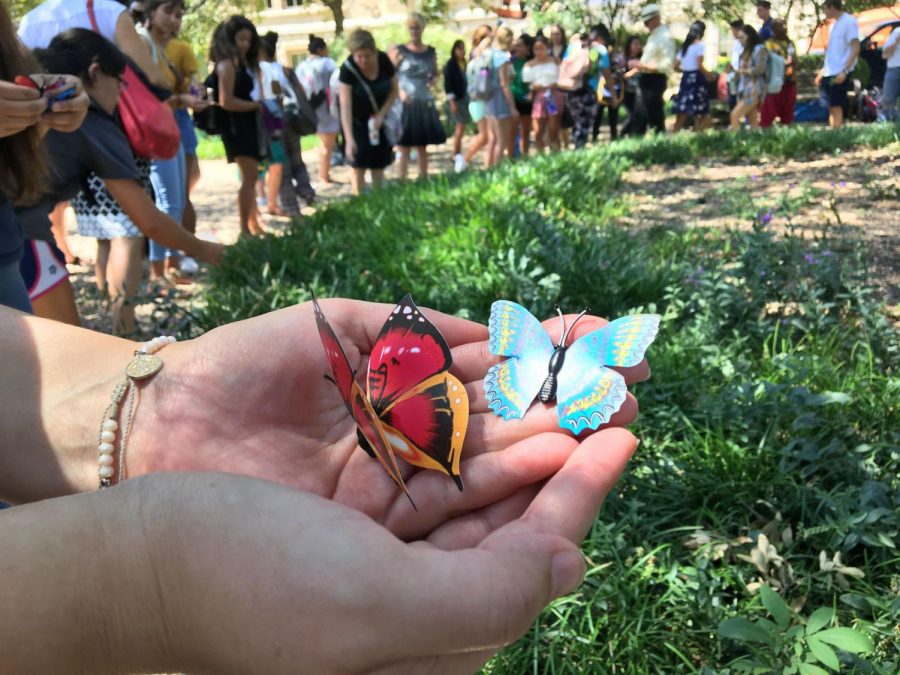Monarchs on the Hilltop sells churros to raise funds for undocumented students
Rare is the campus organization that sells traditional Spanish snacks to promote itself; rarer still are those that advocate for support of undocumented students.
Monarchs on the Hilltop, an organization that does both of these things, has plans that go far beyond the preparation of churros, a sweet, ubiquitous Latin American food, which they sold Feb. 14 to raise money for their nascent club.
“We just wanted to bring something you don’t normally find on campus. I heard a lot of people say ‘I’ve never had a churro before,’” José Garibay, the vice president of the organization said. “We want to give that [money] we raised back to the community.”
Garibay laughs about the churros, but is much more interested in his role as a kind of ambassador to Dreamers on campus. He is serious when he talks about the Monarch’s part in organizing more than 50 DACA [Deferred Action for Childhood Arrivals] applicants renew their applications off-campus, the kind of community work he hopes his club will continue to pursue.
“We began working with organizations around central Austin like ‘Texas Here to Stay’ and other immigrants’ rights organizations,” Garibay said. “We helped run a DACA clinic, which provides free legal help to anyone applying for DACA.”
The Monarchs, whose namesake is the vibrant, migratory butterfly that pervades South Texas, arose from the outrage and fear that the beginning of the Trump administration incited in a large part of the immigrant community.
“[The Monarchs] spend their time in México. As winter is coming, they move through the U.S and up to Canada; they sort of transcend these places,” Garibay said. “They are a symbol of transcending these artificial borders that divide us.”
Garibay and his organization strive to be a source of information, a springboard, at least, for undocumented students who lack access to the information and support they need to be successful as mainly first and second-generation college students. But one of the most notably lacking resources, he says is legal support.
“Many universities around Texas and the nation have these legal support systems for undocumented students,” Garibay said. “We’re hoping St. Edward’s can join that list and have somebody DACA students can look to for support.”
Though St. Edward’s has support systems in place for students, few are devoted specifically to the problems undocumented students encounter.
“There is still a little bit of uncertainty,” Garibay said. “We felt that a lot of undocumented students were not sure who to reach out to.”
An added obstacle that Garibay hopes to address is the $500 application fee that DACA students have to pay with their application — a financial burden a DACA scholarship offered by the university would offset.
Though he admits that a scholarship may be a long way off, the club is working with Lisa Kirkpatrick, the Vice President of Student Affairs to address the practical needs of undocumented students on campus.
“I want to be connected,” Kirkpatrick said. “I want to help. What resources can St. Edward’s offer? How do we keep people’s minds on this?”







